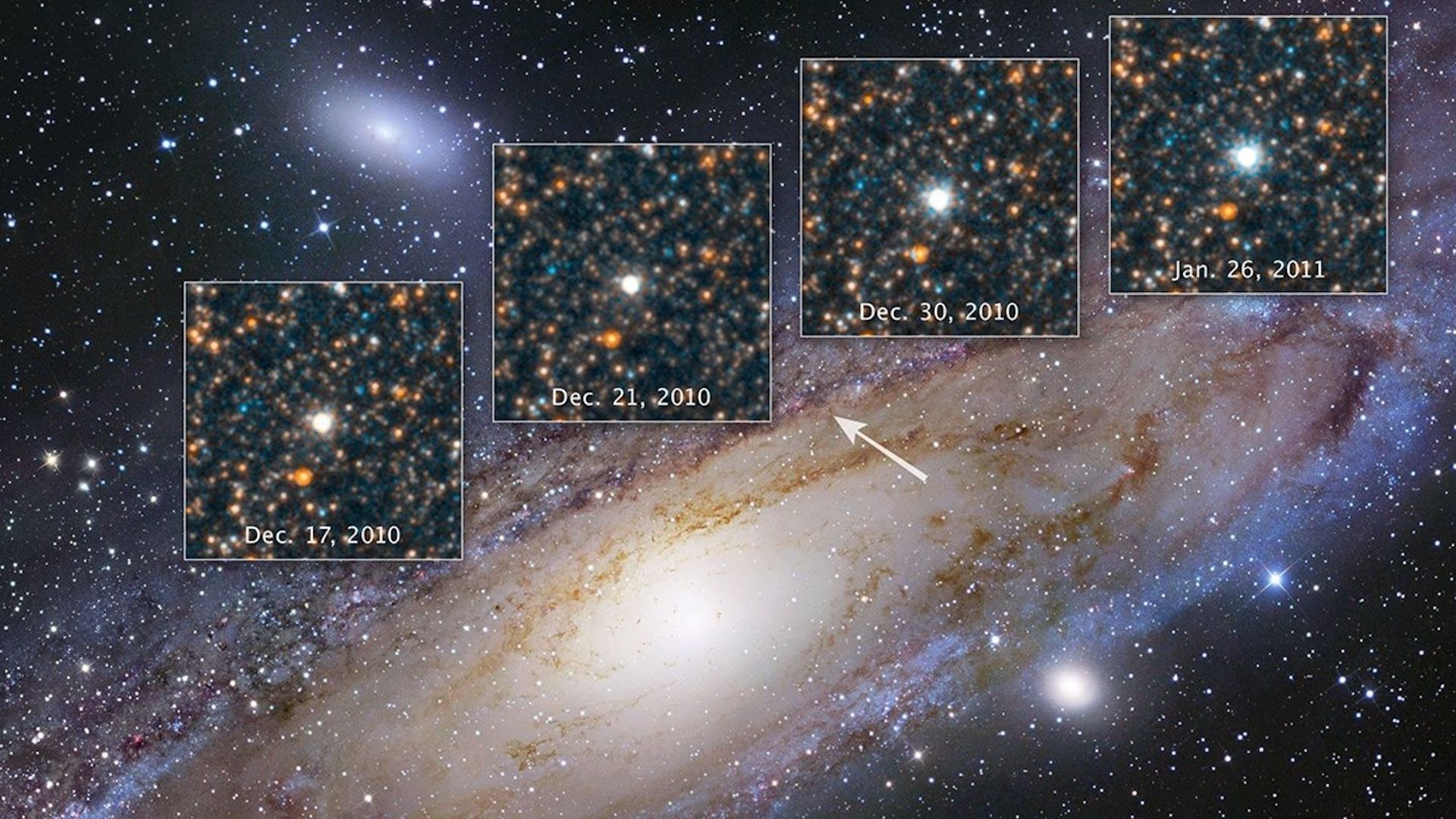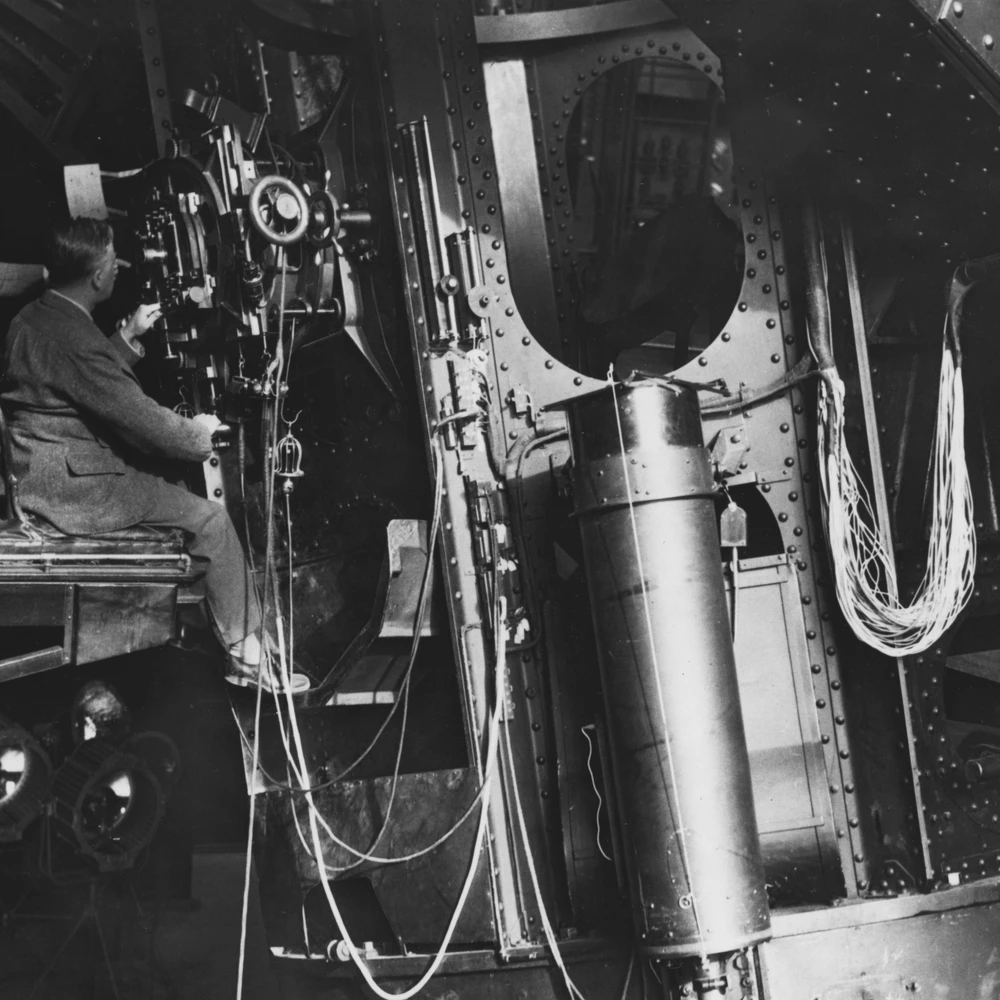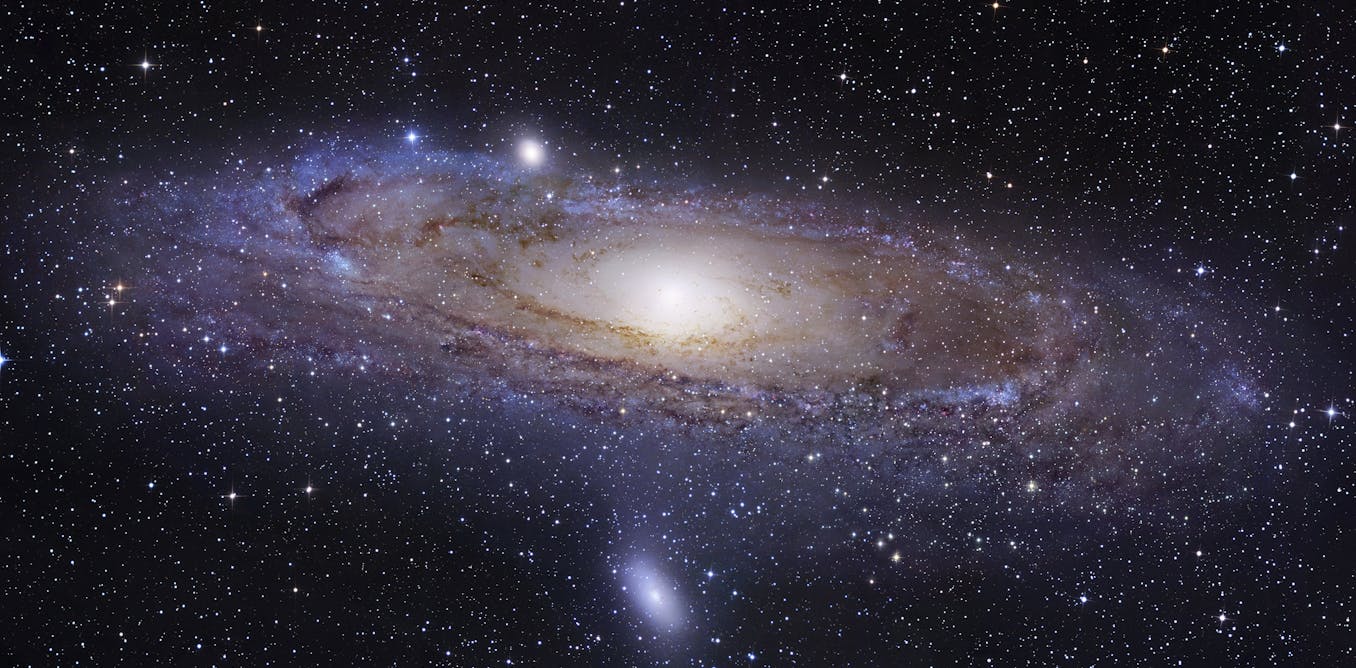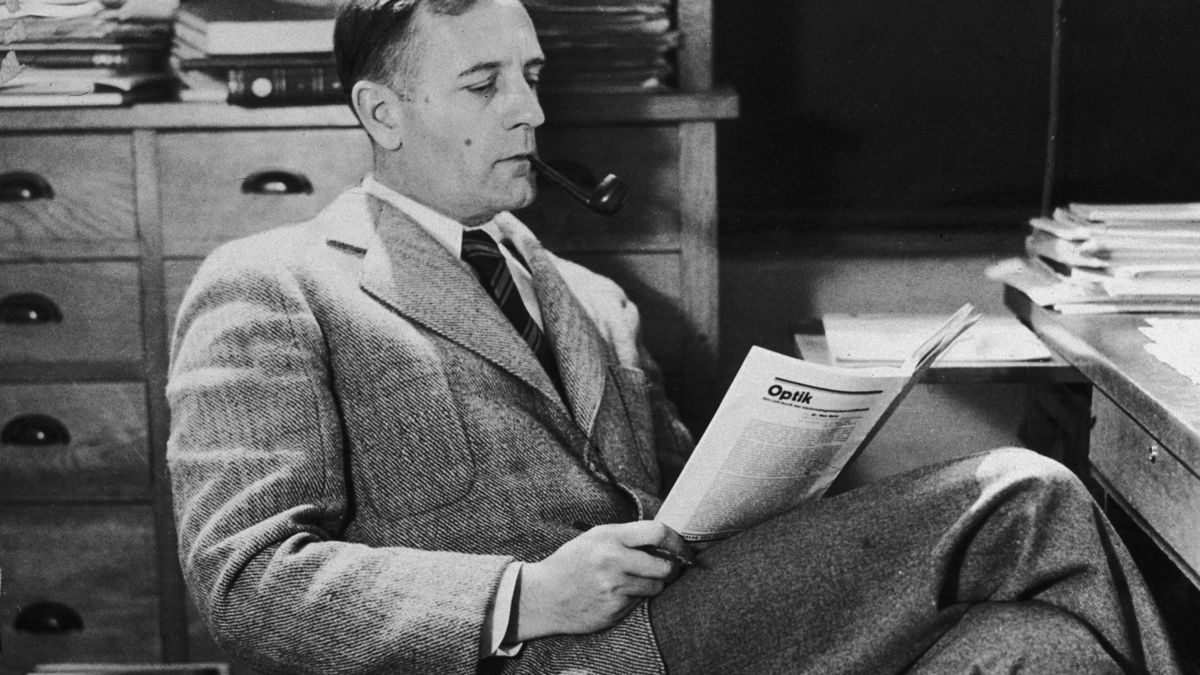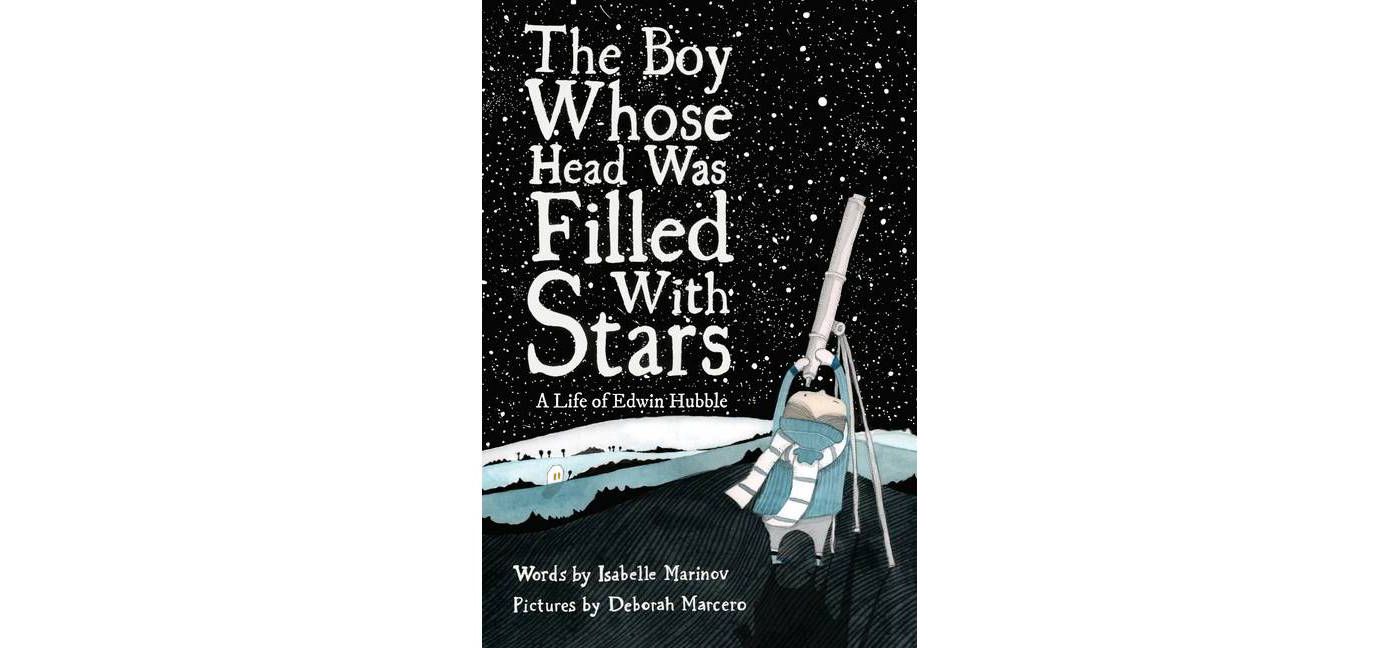
Edwin Hubble
Edwin Powell Hubble was an American astronomer. He played a crucial role in establishing the fields of extragalactic astronomy and observational cosmology. Hubble proved that many objects previously thought to be clouds of dust and gas and classified as "nebulae" were actually galaxies beyond the Milky Way. He used the strong direct relationship between a classical Cepheid variable's luminosity and pulsation period for scaling galactic and extragalactic distances. Hubble provided evidence that the recessional velocity of a galaxy increases with its distance from the Earth, a property now known as "Hubble's law", despite the fact that it had been both proposed and demonstrated observationally two years earlier by Georges Lemaître. The Hubble–Lemaître law implies that the universe is expanding. A decade before, the American astronomer Vesto Slipher had provided the first evidence that the light from many of these nebulae was strongly red-shifted, indicative of high recession velocities.
